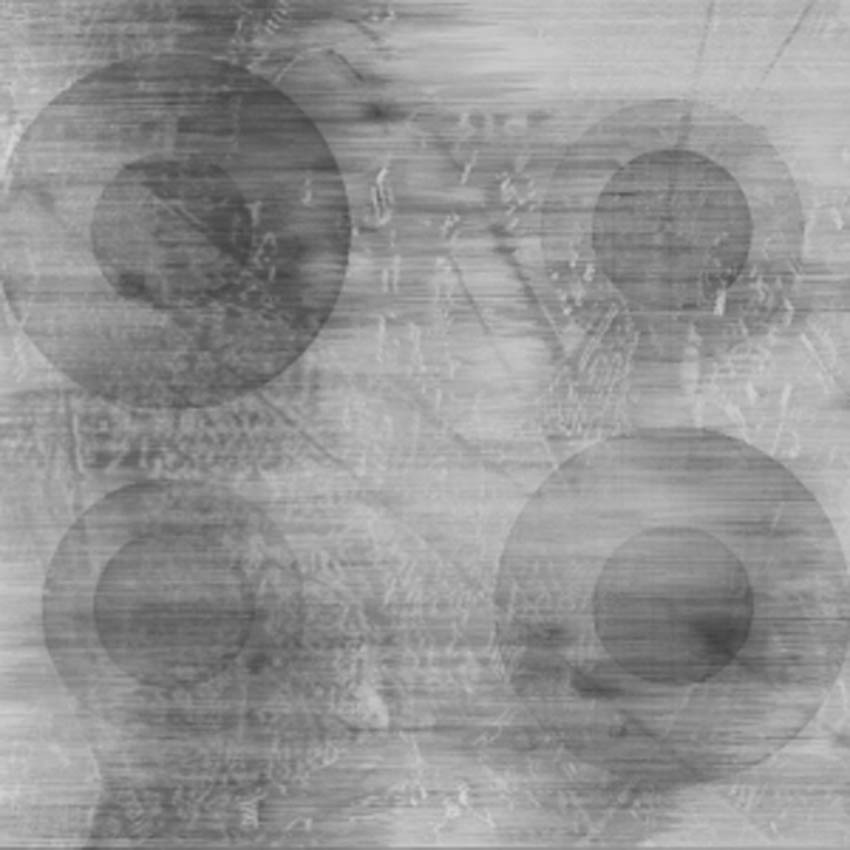
Catherine Christer Hennix has certainly had a very curious career, to say the least: she worked at MIT's Artificial Intelligence lab in the '70s, was a research professor in mathematics at SUNY New Paltz, studied with Pandit Pran Nath and LaMonte Young, collaborated with Henry Flynt, and made some singularly challenging and adventurous music that somehow never got formally released until her 1976 performance of The Electric Harpsichord was finally issued by Die Schachtel in 2010.  Now in her mid-60s, Hennix has beautifully capitalized on the belated interest in her music to become the reigning queen of deep, Eastern-influenced drone.  This latest release is not a far cry from last year's fine Chor(s)san Time-Court Mirage album, but it is every bit as good (if not better).
I must admit that I was pleasantly wrong-footed by Hennix's current direction after being initially exposed to her through the somewhat maniacal and sinister-sounding The Electric Harpsichord, as she now sounds like a completely different artist.  Of course, that makes perfect sense, given that over 30 years separate the recordings and that none of the evolution that occurred between them was ever formally documented or released.  Also, neither this nor the Chor(s)san album are solo endeavors: for Svapiti, Hennix is rejoined by Chor(s)san vocalist Amelia Cuni, as well as new collaborator Werner Durand (credited with "invented wind instruments" and "drones").
Given that Svapiti is about as "drone" as music can get, it might seem like Durand played a very dominant role in the album, but the trio's contributions are so blurred together that it is often impossible  to tell who is doing what.  In any case, the crux of the composition seems to be a gently quavering, hazy, and layered bed of Hennix's vocals accompanied by a steadily buzzing sitar or tambura drone.  In fact, for long stretches, that is all there is (the piece clocks in at nearly an hour).  The beauty lies in the details and the transitions, as the trio gradually embellish their hypnotic thrum with Durand's viscerally breath-like and stuttering wind instruments, as well as Cuni's increasingly prominent and ritualistic-sounding chants (which take their inspiration from Indian classical singing).
Svapiti also steadily grows in density and power as it progresses, but does so in an impressively organic and slow-burning manner.  The most prominent change is the introduction of some deeper wind instruments, which unpredictably blurt and throb rather than languorously drone.  Also, some of the higher-pitched wind instruments begin to swirl together to create a roiling, dissonant miasma that dissipates almost as quickly and unexpectedly as it came together.  That is ultimately the piece's harshest moment, but a few other surprises gradually emerge from Svapiti's ebb and flow as well, the most memorable of which is a juddering, burbling interlude of Cuni's heavily processed vocals.
While Born of Six definitely take quite a bit of their direction, as well as their name*, from Indian classical music, there is actually a bridge that links Svapiti to The Electric Harpsichord—the use of Just Intonation.  I imagine that there are also quite a lot of deeper philosophical and/or behind-the-scenes structural concepts linking them as well (Hennix is big on that sort of thing), but the two albums are as different as night and day from a listening perspective.  Consequently, it is very hard to contextualize Svapiti within Catherine's (very limited) discography.  It is also a bit reductive to even classify this album as "drone," as it is prone to some rather jarring, strangled, and somewhat abrasive passages that occasionally push the piece into somewhat challenging and nerve-jangling territory (a trait shared by labelmate Pauline Oliveros' recent work as well).  The important thing, however, is that it is all very good (which it is).  The Electric Harpsichord probably remains the most bracingly original and essential release in Hennix's oeuvre, but Svapiti deserves a place of honor for presenting her distinctive vision in a much more listenable way.
(*"Born of Six" refers to the Vedic sage Narada's assertion that the tonic note originates from a combination of nose, throat, chest, palate, teeth, and tongue.)
 
Read More

